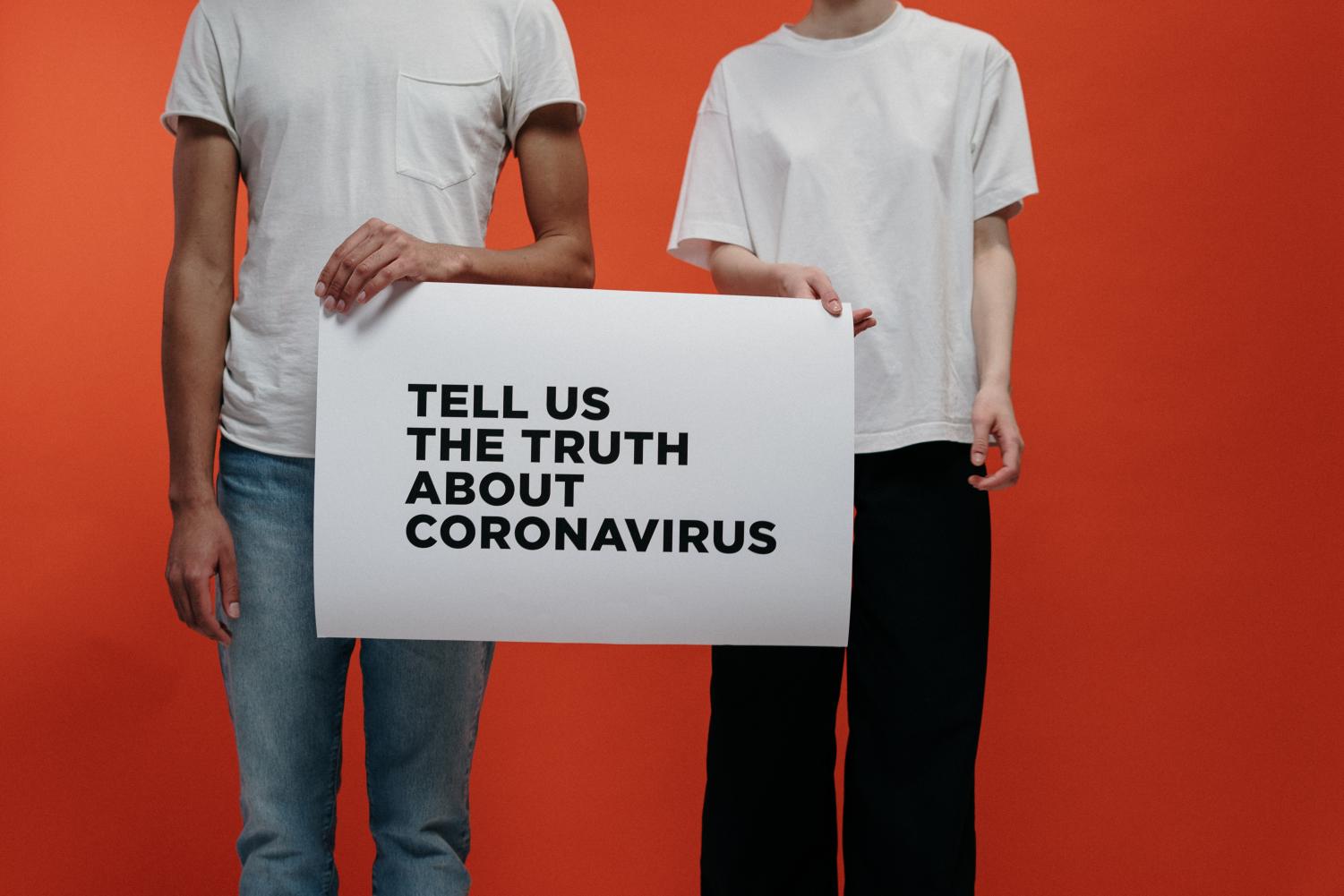COVID-19 Mythbusters
April 2, 2020
Social media, news, and daily conversations have been consumed by the details of the widespread COVID-19 epidemic. Misinformation is common, and, as a result, people often make ill-informed decisions. Here is a list of seven common myths surrounding the coronavirus outbreak.
- Masks can protect against coronavirus.
On the streets of China, it is now far more common to see people wearing face masks during this outbreak. Now, the panic in the United States has raised questions about whether the typical American citizen should wear masks in public and many are claiming that wearing masks in public would prevent the spread of the virus. However, a regular surgical mask is not designed to protect against viruses, so these are not effective and are not recommended for public use in the United States. Because the mask is only a physical barrier, it can only block sizable droplets, for example, from someone’s sneeze or cough. Tiny particles like aerosol can still get through the material and therefore render masks as an inefficient precaution against COVID-19.
The CDC recommends people who have already been affected to wear a mask in order to prevent contaminating people around them, but wearing a mask in public to prevent exposure to the virus is unnecessary.
- Hand sanitizer is a crucial part of protecting your immune system and all hand sanitizers can get rid of COVID-19.
People believe that the more hand sanitizer they use, the higher the chance they have at getting rid of undesirable viruses and bacteria. However, once a virus gets into a person’s body, it cannot be defeated by increased doses of isopropyl alcohol and bleach. According to the CDC, hand sanitizers need at least 60% alcohol content in order to kill germs. And even though some hand sanitizers claim to have this amount, when used too often, hand sanitizer can cause irritated, dry skin.
Increased usage of hand sanitizer also weakens your immune system. Scientists believe that by making such a clean environment for your cells early on in life will lead to a weakened immune system later in life which makes you highly susceptible to contracting viruses later in life.
Although hand sanitizer is good for situations in which there is no access to soap and water, when soap and water are available, it is far better to use them instead of hand sanitizer as they do the same job of getting rid of the viruses, but are also much better for the human skin. Remember, while staying cautious is good, overusing hand sanitizer can be dangerous too.
- Anyone who wants a test can get one
On March 7, President Trump told the press that “anyone who wants a test can get one”. This is untrue and citizens with no serious reason to believe they have coronavirus should not request a test. As of now, only people who have either been in close contact with infected patients and/or exhibit symptoms of the disease should be tested. The testing kits are in short supply and should be saved for people who need them.
The administration promised to release 1 million tests for public use, but it has since warned that it may fall drastically short of this goal. The best way to contain the virus and stop it from spreading is aggressive testing to figure out who has the disease and how to limit contamination, but this is impossible if tests are not readily available.
- The flu is deadlier than coronavirus.
Although many people had said at the beginning of the outbreak that COVID-19 has the same effects and mortality rate as the seasonal flu, this assumption is based on the symptoms and data from only a few weeks after the virus began to spread. While coronavirus and flu patients exhibit the same symptoms, the flu has a mortality rate of less than 1% whereas COVID-19 has a mortality rate of a rising 3.4%. A few months after the outbreak, the death toll now proves that coronavirus is more deadly than both SARS and the seasonal flu.
Although this information is not meant to cause a panic, it is imperative that people know that coronavirus is not as minuscule as the seasonal flu and there is reason to take a few extra precautions.
- The US has contained the virus
Two White House officials, Larry Kudlow and Kellyanne Conway have declared that the virus is contained and “airtight”. However, this is far from true.
Since testing for COVID-19 is not readily available, people have no way of knowing who has COVID-19 and who doesn’t. What’s worse, the symptoms of coronavirus don’t appear until two weeks after one has contracted the virus. As a result of inadequate testing, the virus can spread relatively undetected.
It is not safe to assume that coronavirus is contained, and the CDC advised Americans to stay cautious at this time.
- Parcels from China can spread coronavirus
After the immediate outbreak, people have been circulating this notion that if someone has something “Made in China” or shipped from China, that parcel will have traces of coronavirus that will lead to contamination.
First, this is untrue as scientists have discovered that at most, under non-extreme conditions, coronavirus can at most last up to 2-3 days on surfaces while packages from China usually take more than 3 business days to ship to the United States.
Second, many nations have a mail disinfection process where internationally shipped packages often go through a rigorous disinfection process if officials have reason to presume that they could have contaminants on them.
So there is no need to worry about contracting coronavirus from touching a package shipped from China or to think that coronavirus spread to the United States from products shipped from China.
- Only the elderly or people with compromised immune systems are at risk of being infected with the coronavirus.
Because seniors and people with compromised immune systems have made up the majority of coronavirus deaths, many people have assumed they are the only people being affected (which also relates to the myth that everyone who contracts coronavirus dies from coronavirus).
However, anyone can get affected with coronavirus, it is just older adults and people with pre-existing health issues who are in the most danger as they will most like experience severe health issues and have a higher chance of dying.
So although only these select demographics have the highest chance of dying, this does not decrease the risk of catching coronavirus and other people should still regularly practice social distancing in order to avoid contracting coronavirus.



